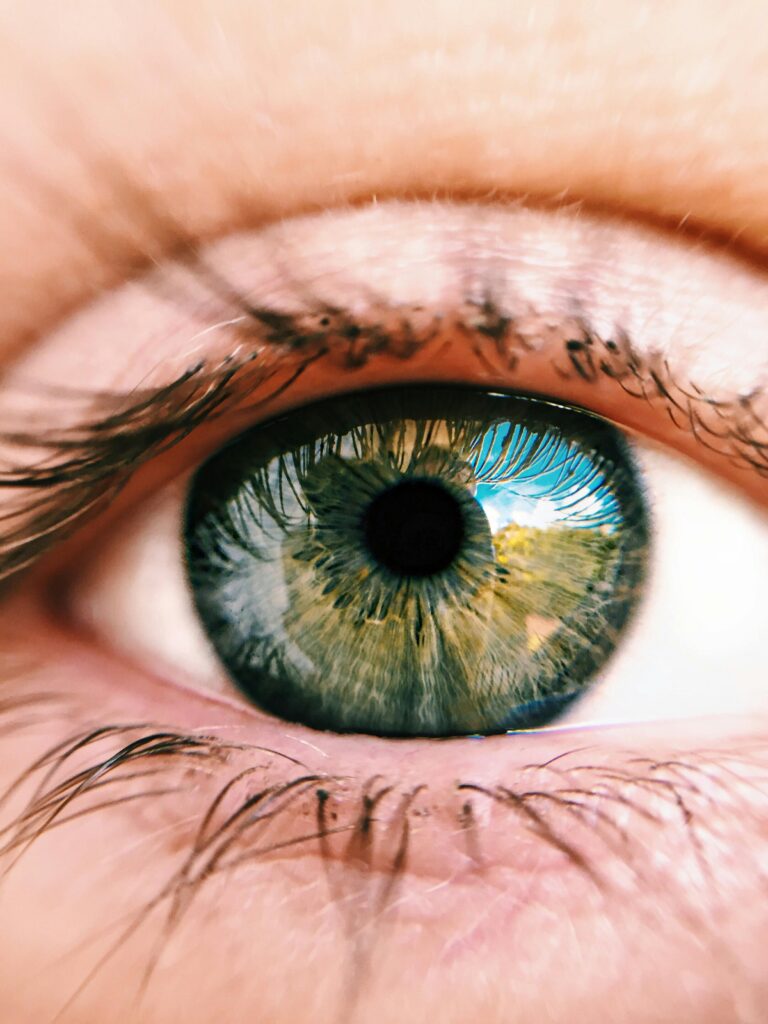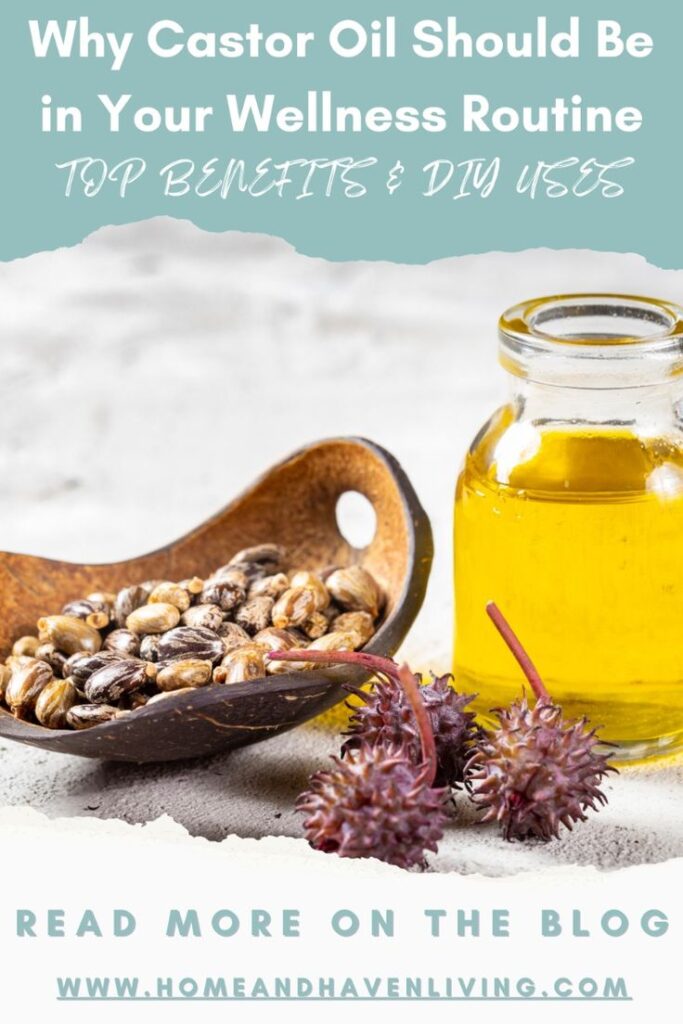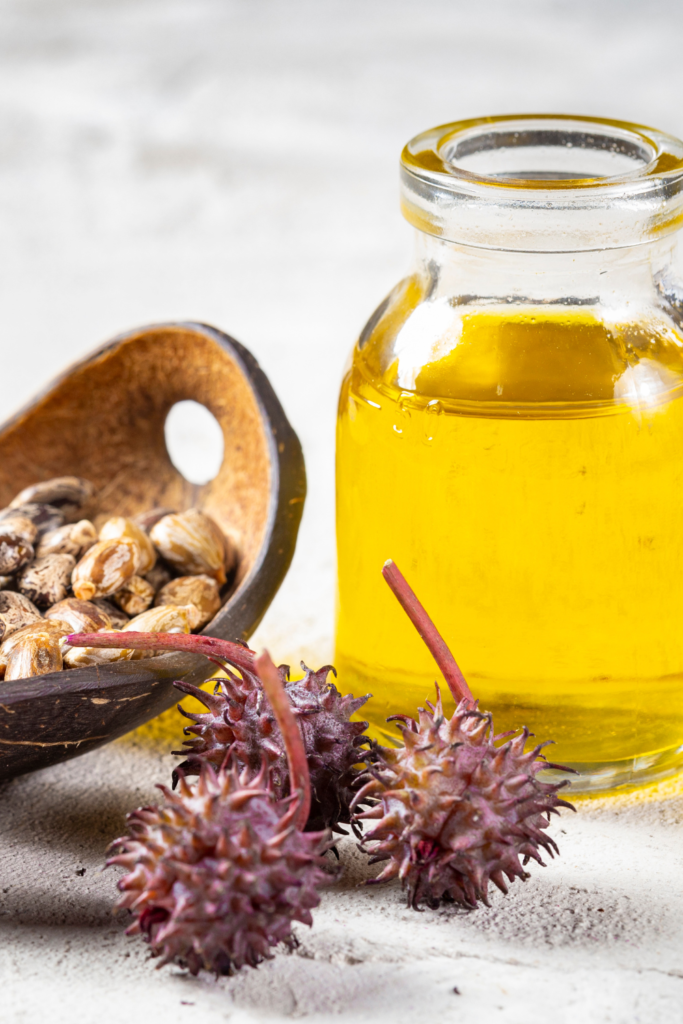The Benefits of Castor Oil for Your Eyes: Dry Eyes, Eye Bags, Eye Floaters, and Cataracts

Castor oil is one of nature’s most powerful remedies, and it’s not just for hair and skin! It has gained popularity in recent years for its surprising benefits for eye health. From relieving dry eyes to reducing eye bags and even addressing concerns like eye floaters and cataracts, castor oil is a natural solution that many are turning to for improved eye health. In this blog, we will dive into the benefits of castor oil for your eyes and how it can help with common eye issues like dry eyes, eye bags, eye floaters, and cataracts.
What Makes Castor Oil Beneficial for the Eyes?
Castor oil is extracted from the seeds of the castor plant (Ricinus communis). It is rich in ricinoleic acid, a powerful anti-inflammatory compound that is believed to help reduce irritation and inflammation. Castor oil is also loaded with antioxidants and essential fatty acids, making it a nourishing and soothing remedy for various eye conditions.
When applied to the skin around the eyes or used in specific eye care applications, castor oil’s soothing properties can help heal and maintain eye health. Below, we will explore how castor oil can help with four common eye issues.
1. Castor Oil for Dry Eyes
Dry eyes are a common condition that occurs when your tear glands don’t produce enough moisture to keep your eyes lubricated. This can lead to discomfort, irritation, and redness.
How Castor Oil Helps:
Castor oil’s moisturizing and lubricating properties make it an excellent remedy for dry eyes. When applied in small amounts, it can help increase moisture retention in the eyes and alleviate the discomfort associated with dryness.
How to Use Castor Oil for Dry Eyes:
- Step 1: Use a sterile eye dropper to apply a small amount of cold-pressed castor oil directly onto your lower eyelid or in the corners of your eyes before bedtime.
- Step 2: Gently blink to spread the oil evenly over the surface of the eyes.
- Step 3: For maximum benefit, repeat this nightly to soothe dry eyes and restore moisture.
Important: Always use pure, organic, cold-pressed castor oil for eye applications to ensure safety and avoid irritants.
2. Castor Oil for Eye Bags
Puffy, swollen eyes and dark circles can be caused by several factors, including lack of sleep, stress, or fluid retention. Castor oil’s anti-inflammatory and hydrating properties can help reduce the appearance of eye bags.
How Castor Oil Helps:
Castor oil helps reduce swelling and puffiness due to its anti-inflammatory action. The rich fatty acids in castor oil can nourish the delicate skin around the eyes, reducing fluid retention and soothing inflammation.
How to Use Castor Oil for Eye Bags:
- Step 1: Take a small amount of cold-pressed castor oil and gently massage it around the under-eye area.
- Step 2: Leave it on for 15–20 minutes to allow the oil to absorb and work its magic.
- Step 3: Wash it off with lukewarm water and pat dry with a clean towel.
- Tip: For best results, apply castor oil at night before bed to give it time to work overnight.
3. Castor Oil for Eye Floaters
Eye floaters are small shapes or specks that float across your vision. While they are generally harmless, they can be annoying and frustrating. Some believe that the anti-inflammatory properties of castor oil can help alleviate the irritation caused by eye floaters.
How Castor Oil Helps:
While more research is needed to confirm its effectiveness in treating eye floaters, castor oil’s anti-inflammatory properties may help reduce irritation and strain, which can exacerbate floaters.
How to Use Castor Oil for Eye Floaters:
- Step 1: Cleanse your face and wash your hands thoroughly.
- Step 2: Gently massage a tiny amount of organic castor oil onto your closed eyelids.
- Step 3: Let the oil absorb naturally and avoid rubbing your eyes afterward.
Be mindful to avoid getting castor oil directly into your eyes to prevent irritation.
4. Castor Oil for Cataracts
Cataracts are a common age-related eye condition that causes clouding of the eye’s natural lens, leading to blurry vision. Some individuals claim that castor oil can help slow down the progression of cataracts, although scientific studies on this topic are limited.
How Castor Oil Helps:
The antioxidant properties of castor oil are believed to support eye health and reduce oxidative stress, which is a contributing factor to cataract development. Although not a cure for cataracts, regular use of castor oil on the eyelids may promote overall eye health and comfort.
How to Use Castor Oil for Cataracts:
- Step 1: Gently massage a small amount of cold-pressed castor oil onto your eyelids before bedtime.
- Step 2: Be sure to avoid getting any oil directly into the eyes.
- Step 3: Repeat this process nightly to help reduce irritation and maintain hydration around the eyes.
Note: Always consult your eye doctor before attempting any treatments for cataracts.

How to Choose the Best Castor Oil for Your Eyes
When selecting castor oil for your eyes, it is important to choose a high-quality, pure product. Here are a few tips for selecting the best castor oil for eye health:
- Organic & Cold-Pressed: Look for organic, cold-pressed castor oil to ensure it’s free from chemicals and retains all its natural healing properties.
- Pure & Chemical-Free: Make sure the oil is free of fragrances, additives, and preservatives to prevent irritation.
- Packaging: Opt for castor oil that comes in dark glass bottles, as these help protect the oil from light and keep it fresh.
Conclusion
Castor oil is a versatile and natural remedy for many common eye concerns, including dry eyes, eye bags, eye floaters, and even cataracts. With its anti-inflammatory, moisturizing, and antioxidant properties, it can help nourish and soothe the delicate skin around your eyes while promoting overall eye health. If you’re looking for a natural, effective solution for your eye care routine, castor oil may be the answer.
Always use pure, organic, cold-pressed castor oil for the best results, and consult with your healthcare provider if you have concerns about your eye health.
References:
- “Castor Oil for Eye Care: Benefits and Uses.” Healthline, https://www.healthline.com
- Patel, P. K. (2021). “The Role of Castor Oil in Treating Eye Health Conditions.” Journal of Natural Medicine, 34(2), 115-120.
- “Understanding Eye Floaters and How to Treat Them.” American Optometric Association, https://www.aoa.org
As an Amazon Associate, we earn from qualifying purchases, but at no extra cost to you.



